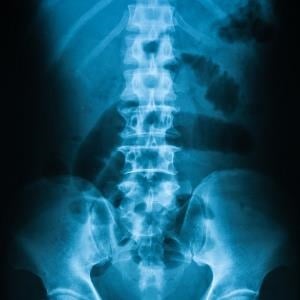
The following factors may increase your risk of peptic ulcer disease (PUD):
- Frequent use of over-the-counter painkillers such as aspirin, ibuprofen and other non-steroidal anti-inflammatory drugs (NSAIDs).
- A family history of ulcers. More than 20% of people with peptic ulcers also have a family history of the problem.
- Increased age. Studies show that peptic ulcers occur more commonly in the elderly. This is true for both sexes and is most probably linked to the use of NSAIDs (e.g. for treating chronic pain and arthritis).
This risk increases significantly in people over the age of 65 years with arthritis who use low doses of aspirin. Taking a low dose of aspirin is also associated with increased risk in the following situations:
- Previous peptic ulcer disease
- Current use of NSAIDs, acid-suppressive agents or oral steroids
- Tobacco use
- Stress
- Anaemia
- Depression
- Social deprivation
Note that H. pylori eradication prior to the long-term use of NSAIDs is associated with a decrease in peptic ulceration.
- Overweight and obesity. Research shows that visceral fat (fat stored in the abdominal area) can disrupt the normal functioning of the protective lining of the stomach and duodenum, causing inflammation and, potentially, ulceration.
- Smoking and, potentially, excessive alcohol use. Heavy smokers are more likely to develop duodenal ulcers than non-smokers. Smoking increases acid secretion and the risk of complications arising from ulcers, such as bleeding, obstruction and perforation of the stomach.
- Too little sleep. Research indicates that people who sleep less than 9 hours are more likely to develop peptic ulcers than those who sleep more.
- Stress. The link between psychological stress and peptic ulcers remain controversial. But Danish research showed that stress may be a contributing factor, partly because of associated health risk behaviours (e.g. excessive alcohol use and smoking).
- Type O blood. Research conducted in Sweden and Denmark indicated that people with blood type O were more likely to be hospitalised for peptic ulcers than people with other blood types. The exact mechanism remains unclear.
- Zollinger-Ellison syndrome – a condition in which the body produces too much gastrin (a hormone that stimulates the secretion of gastric acid). This occurs most often as a result of a tumour.
In up to a third of people with duodenal ulcers the basal and maximal output of acid are increased, indicating that they have a physiological increase in parietal mass (the acid-producing cells). This is sometimes associated with more rapid gastric emptying that delivers a high load of acid in the first part of the duodenum (where most of the ulcers occur).
Read more:
The complications of peptic ulcers
Preventing peptic ulcers
The symptoms of peptic ulcers
Reviewed by Dr Estelle Wilken, senior specialist in Internal Medicine and Gastroenterology at Tygerberg Hospital. December 2017.




 Publications
Publications
 Partners
Partners















